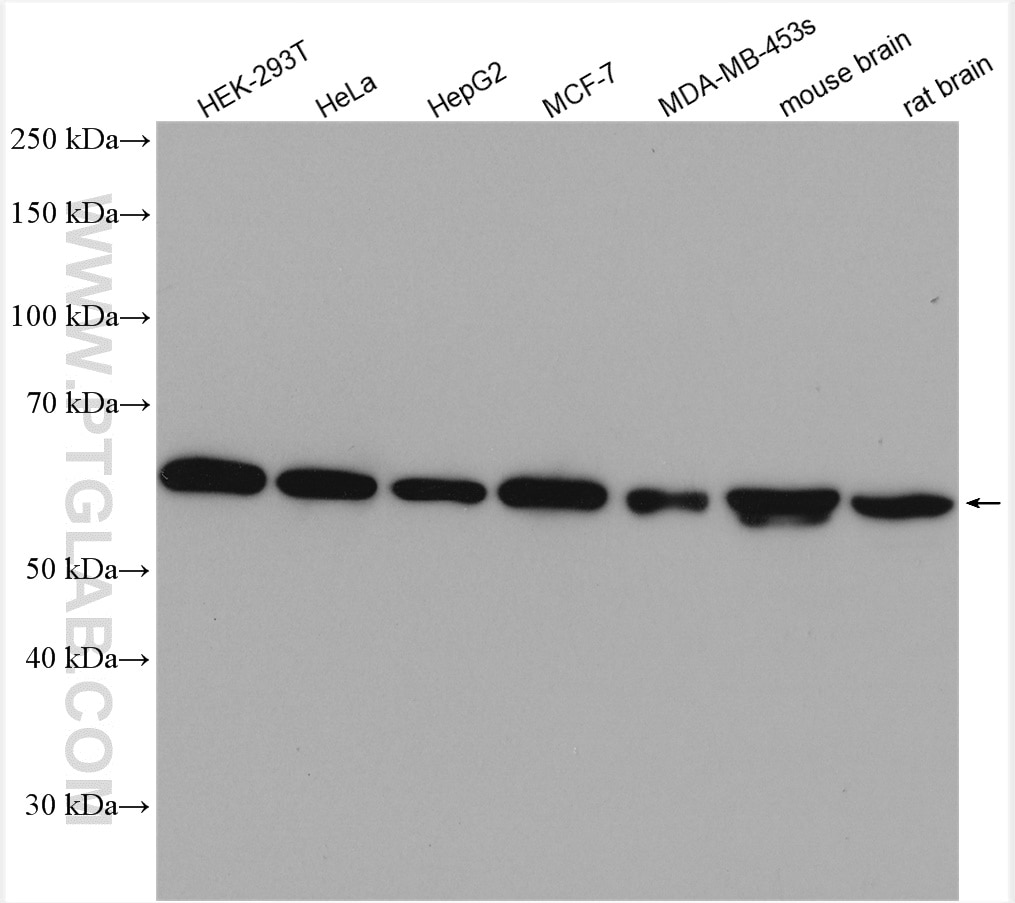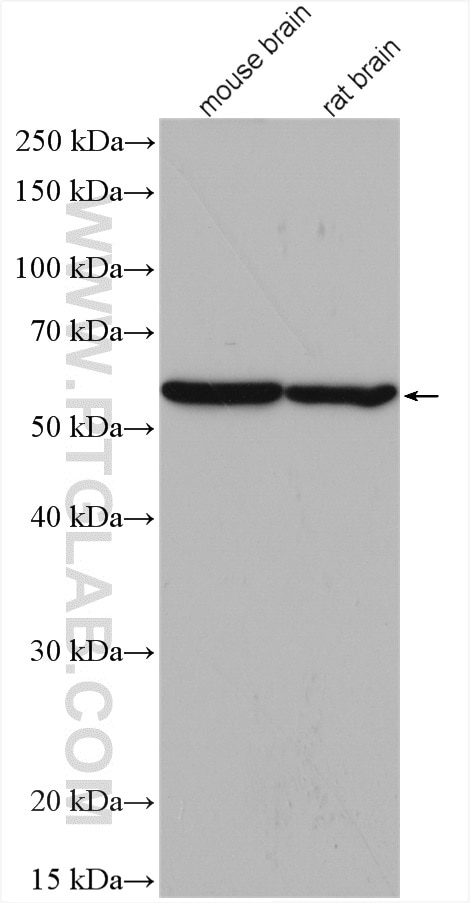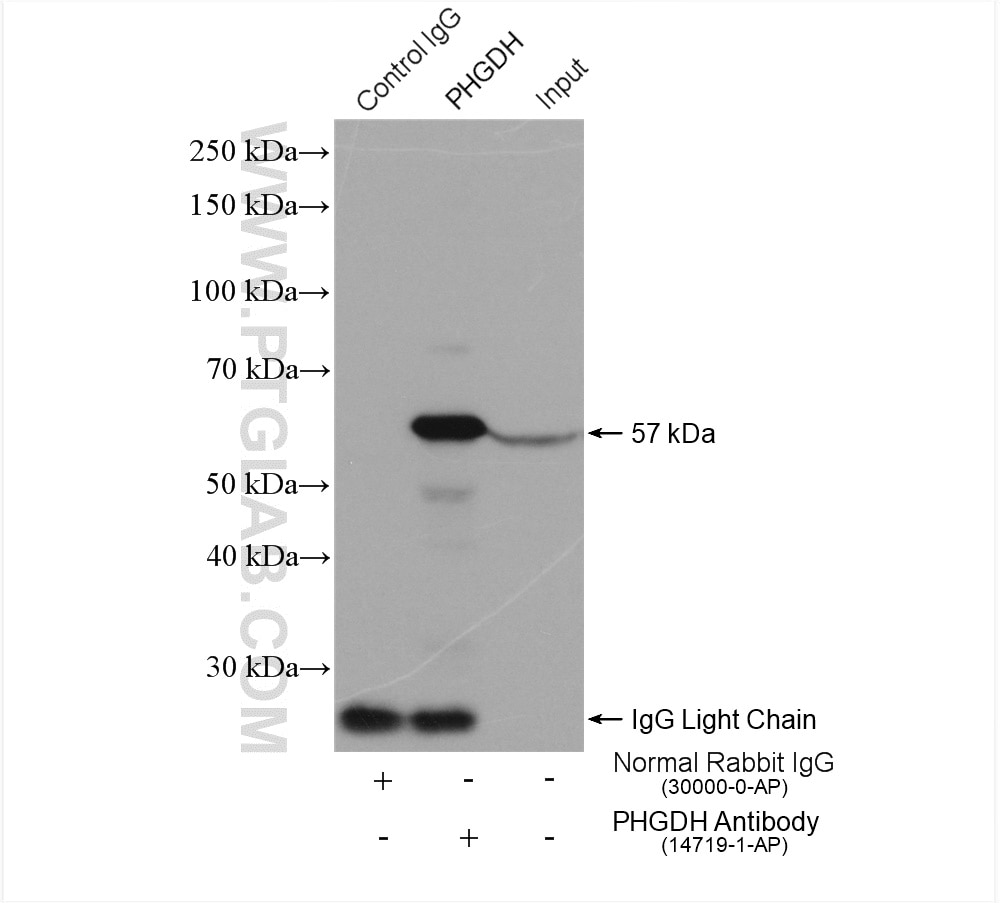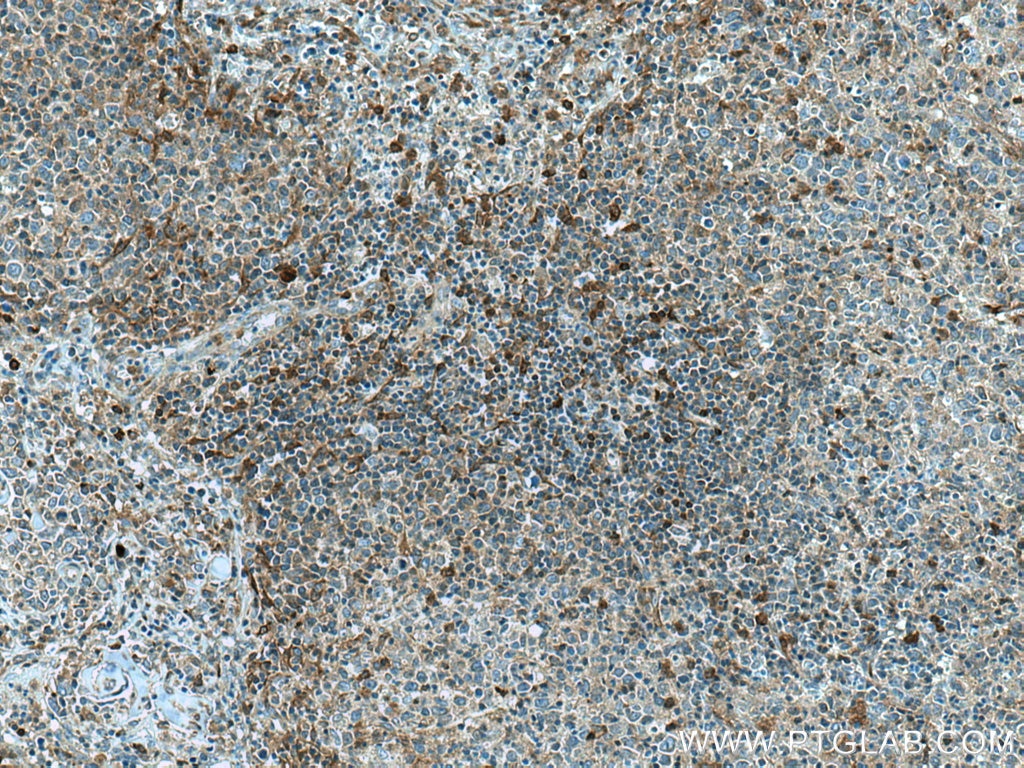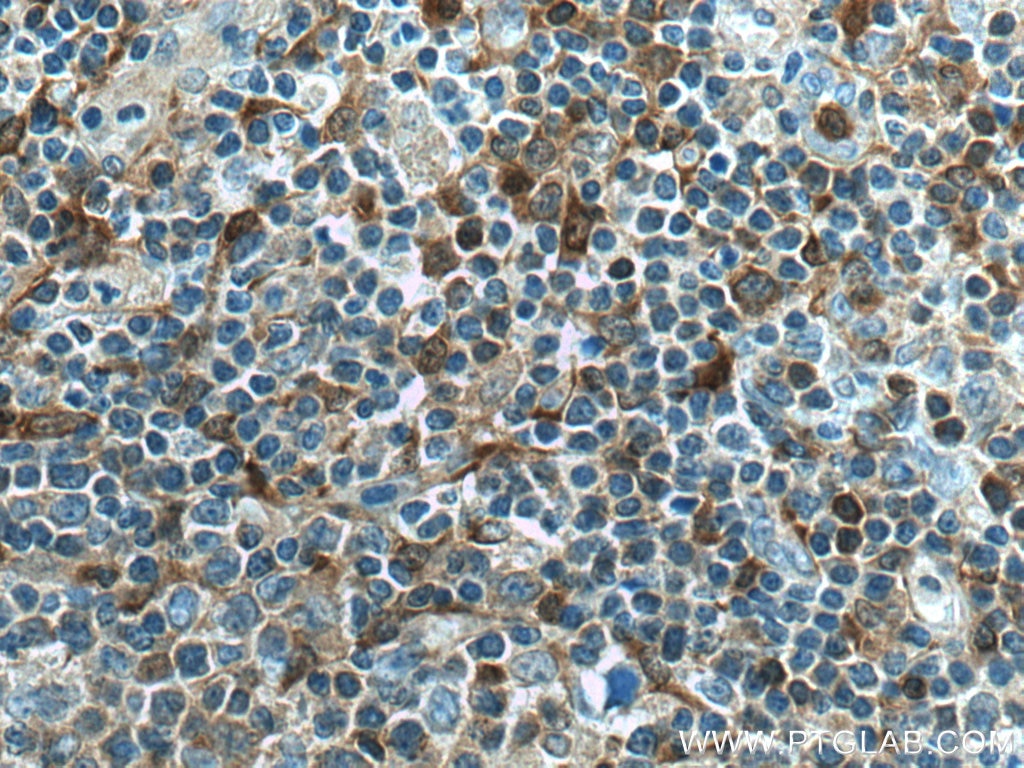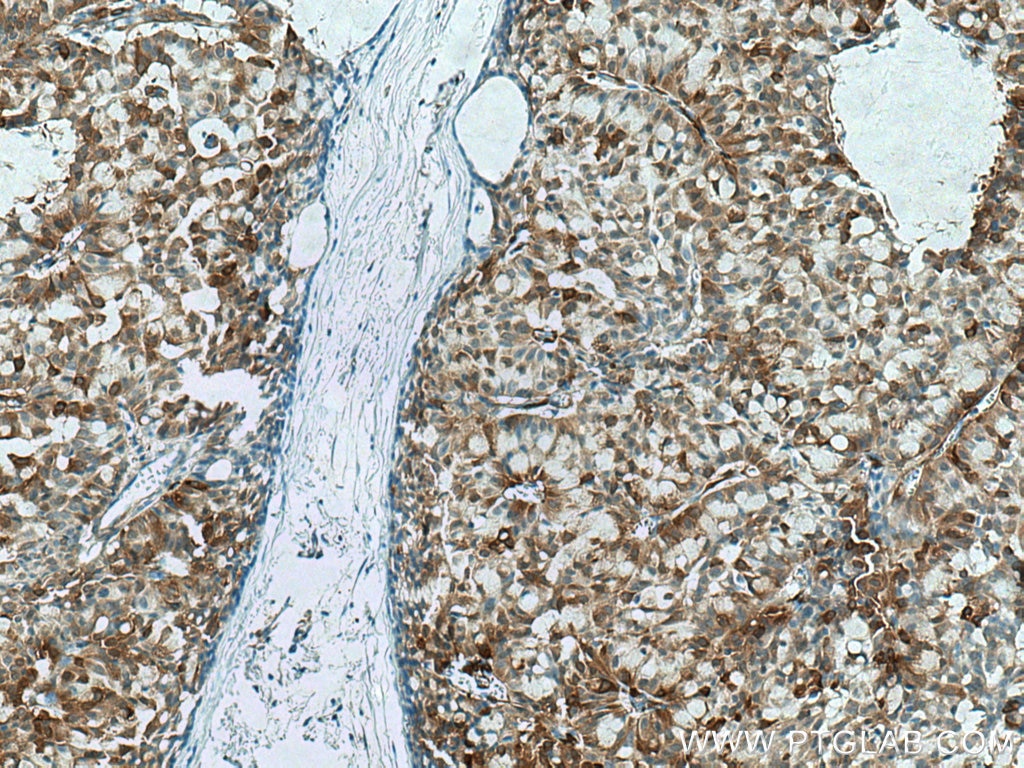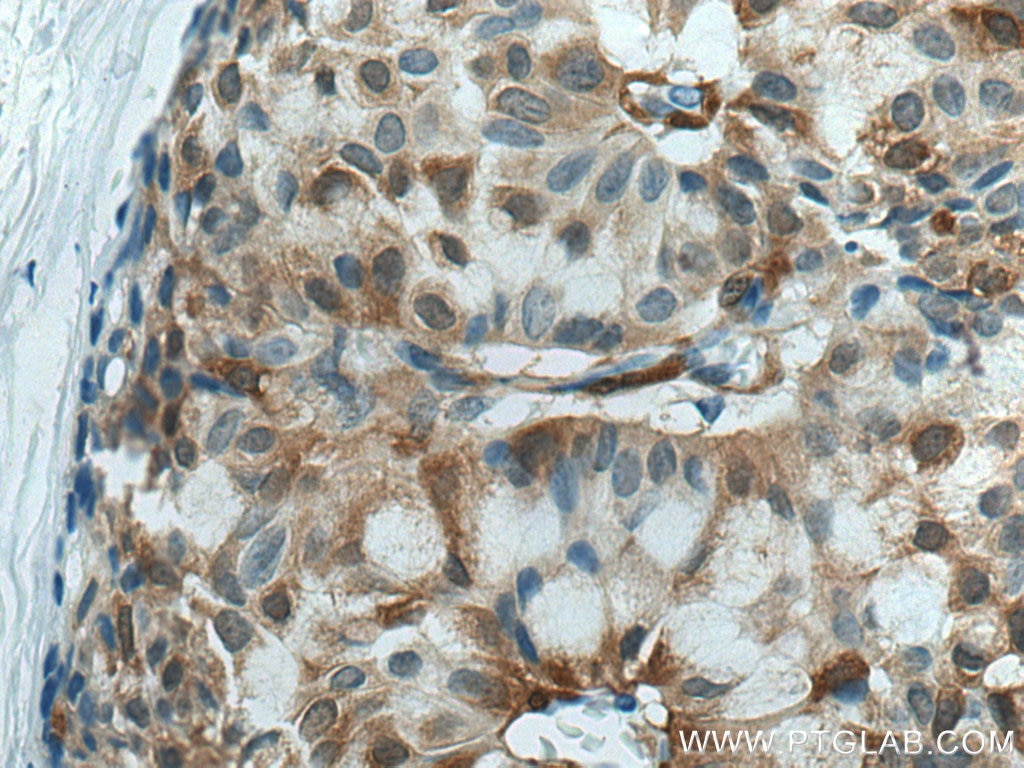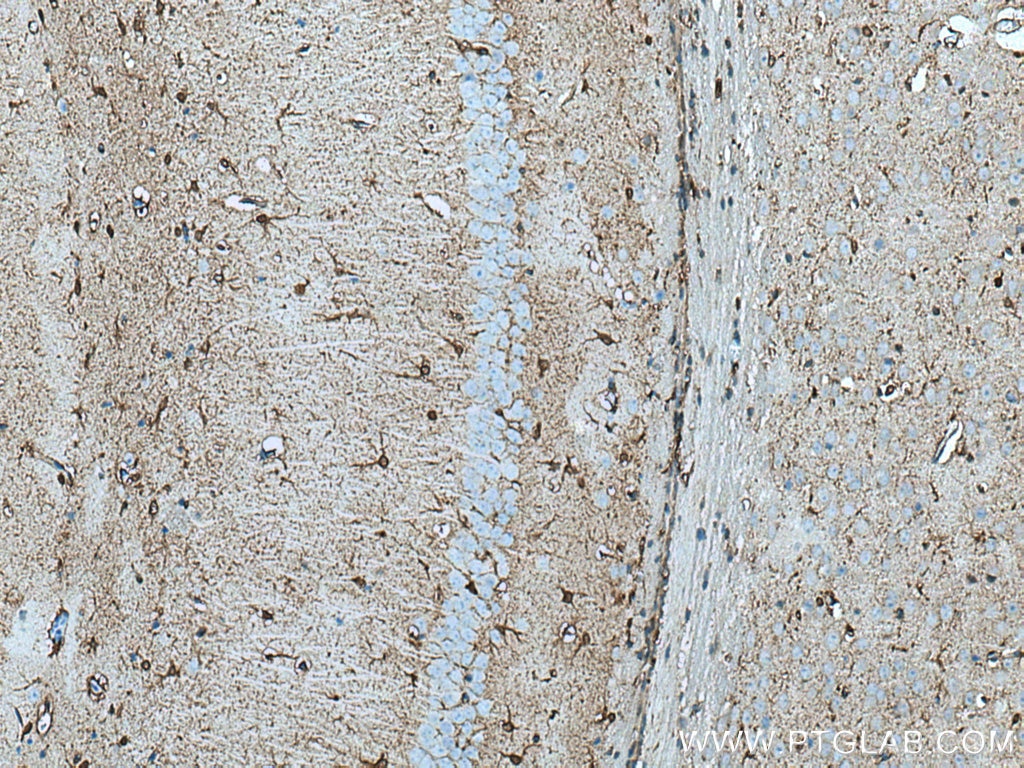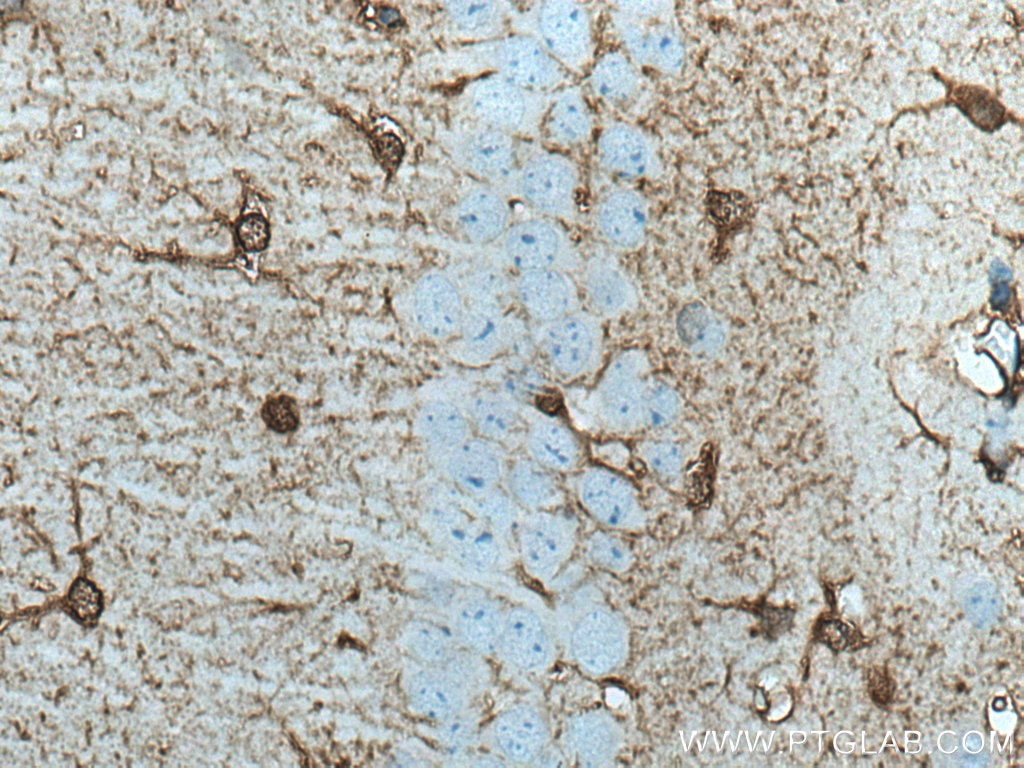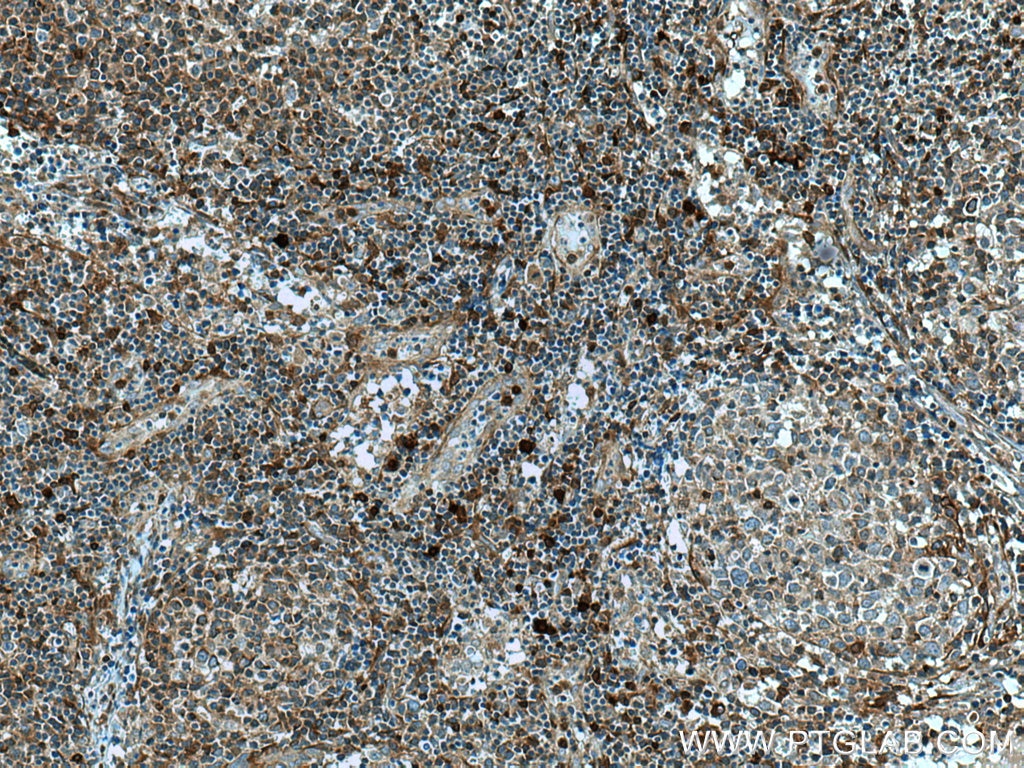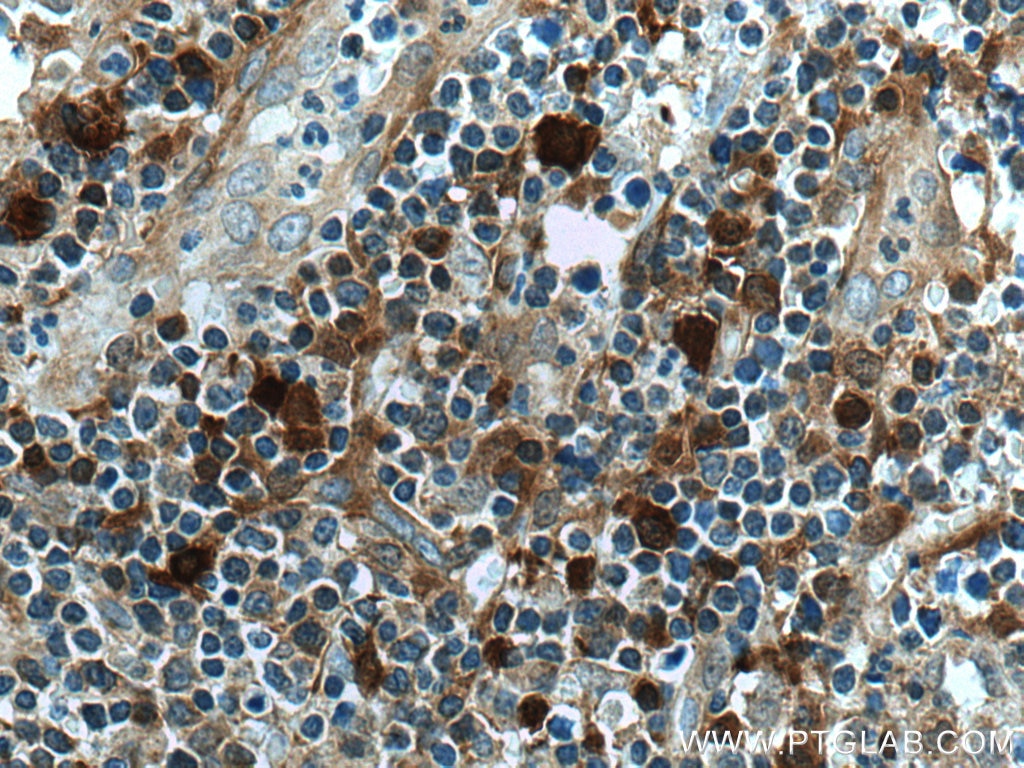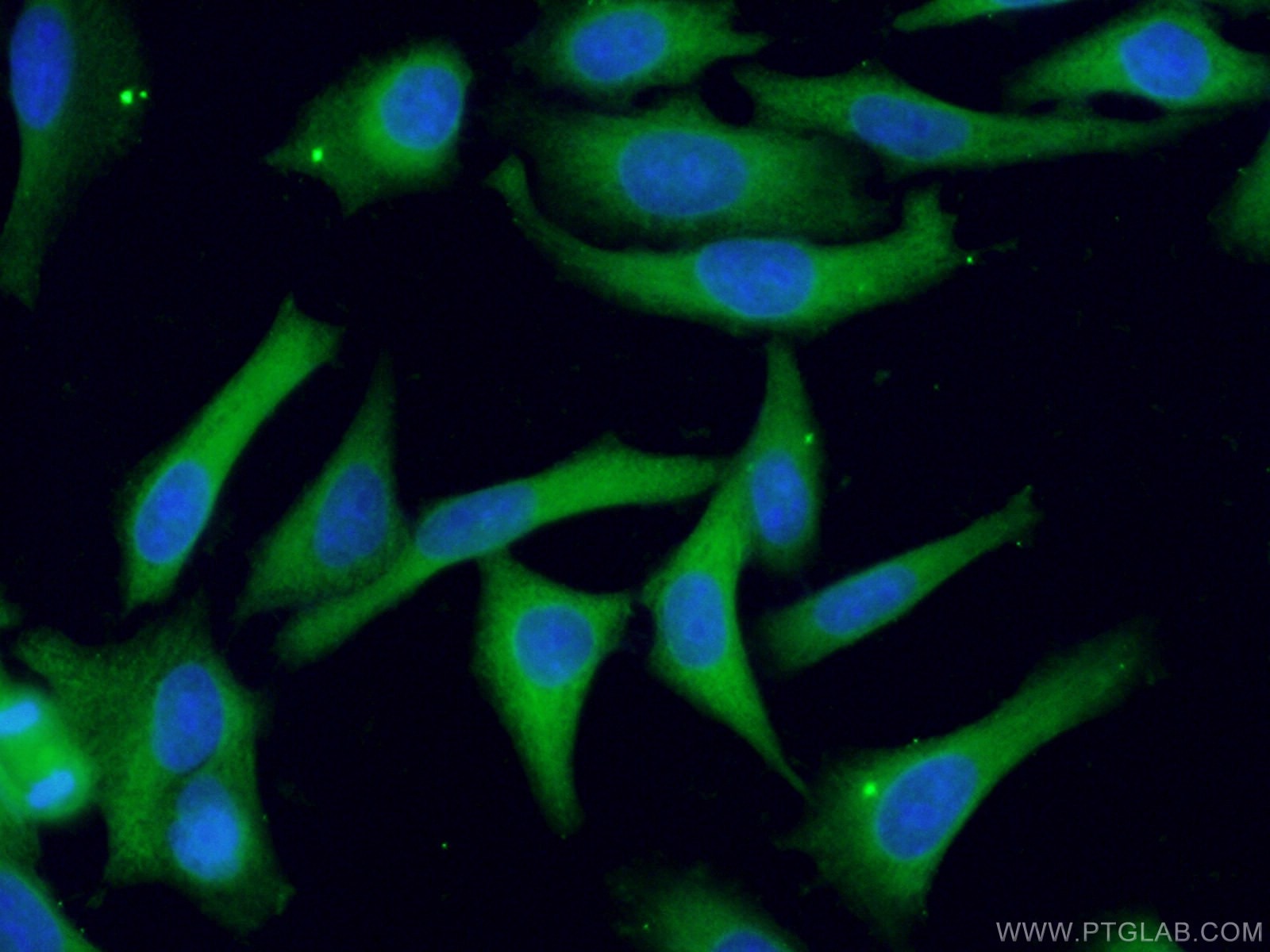- Featured Product
- KD/KO Validated
PHGDH Polyklonaler Antikörper
PHGDH Polyklonal Antikörper für IF, IHC, IP, WB, ELISA
Wirt / Isotyp
Kaninchen / IgG
Getestete Reaktivität
human, Maus, Ratte
Anwendung
WB, IP, IHC, IF, CoIP, ELISA
Konjugation
Unkonjugiert
Kat-Nr. : 14719-1-AP
Synonyme
Galerie der Validierungsdaten
Geprüfte Anwendungen
| Erfolgreiche Detektion in WB | HEK-293T-Zellen, HeLa-Zellen, HepG2-Zellen, Maushirngewebe, MCF-7-Zellen, MDA-MB-453s-Zellen, Rattenhirngewebe |
| Erfolgreiche IP | HeLa-Zellen |
| Erfolgreiche Detektion in IHC | humanes Lymphomgewebe, humanes Mammahyperplasie-Gewebe, Maushirngewebe Hinweis: Antigendemaskierung mit TE-Puffer pH 9,0 empfohlen. (*) Wahlweise kann die Antigendemaskierung auch mit Citratpuffer pH 6,0 erfolgen. |
| Erfolgreiche Detektion in IF | HeLa-Zellen |
Empfohlene Verdünnung
| Anwendung | Verdünnung |
|---|---|
| Western Blot (WB) | WB : 1:1000-1:6000 |
| Immunpräzipitation (IP) | IP : 0.5-4.0 ug for 1.0-3.0 mg of total protein lysate |
| Immunhistochemie (IHC) | IHC : 1:500-1:2000 |
| Immunfluoreszenz (IF) | IF : 1:50-1:500 |
| It is recommended that this reagent should be titrated in each testing system to obtain optimal results. | |
| Sample-dependent, check data in validation data gallery | |
Veröffentlichte Anwendungen
| KD/KO | See 8 publications below |
| WB | See 41 publications below |
| IHC | See 14 publications below |
| IF | See 6 publications below |
| CoIP | See 2 publications below |
Produktinformation
14719-1-AP bindet in WB, IP, IHC, IF, CoIP, ELISA PHGDH und zeigt Reaktivität mit human, Maus, Ratten
| Getestete Reaktivität | human, Maus, Ratte |
| In Publikationen genannte Reaktivität | human, Maus, Ratte |
| Wirt / Isotyp | Kaninchen / IgG |
| Klonalität | Polyklonal |
| Typ | Antikörper |
| Immunogen | PHGDH fusion protein Ag6445 |
| Vollständiger Name | phosphoglycerate dehydrogenase |
| Berechnetes Molekulargewicht | 57 kDa |
| Beobachtetes Molekulargewicht | 57 kDa |
| GenBank-Zugangsnummer | BC000303 |
| Gene symbol | PHGDH |
| Gene ID (NCBI) | 26227 |
| Konjugation | Unkonjugiert |
| Form | Liquid |
| Reinigungsmethode | Antigen-Affinitätsreinigung |
| Lagerungspuffer | PBS mit 0.02% Natriumazid und 50% Glycerin pH 7.3. |
| Lagerungsbedingungen | Bei -20°C lagern. Nach dem Versand ein Jahr lang stabil Aliquotieren ist bei -20oC Lagerung nicht notwendig. 20ul Größen enthalten 0,1% BSA. |
Hintergrundinformationen
PHGDH(D-3-phosphoglycerate dehydrogenase) is also named as 3-PGDH, PGDH3 and belongs to the D-isomer specific 2-hydroxyacid dehydrogenase family. It catalyzes the transition of 3-phosphoglycerate into 3-phosphohydroxypyruvate, which is the first and rate-limiting step in the phosphorylated pathway of serine biosynthesis, using NAD+/NADH as a cofactor. 3-PGDH deficiency is a rare recessive inborn error in the biosynthesis of the amino acid L-serine characterized clinically by congenital microcephaly, psychomotor retardation, and intractable seizures(PMID:19235232 ).
Protokolle
| Produktspezifische Protokolle | |
|---|---|
| WB protocol for PHGDH antibody 14719-1-AP | Protokoll herunterladen |
| IHC protocol for PHGDH antibody 14719-1-AP | Protokoll herunterladen |
| IF protocol for PHGDH antibody 14719-1-AP | Protokoll herunterladen |
| IP protocol for PHGDH antibody 14719-1-AP | Protokoll herunterladen |
| Standard-Protokolle | |
|---|---|
| Klicken Sie hier, um unsere Standardprotokolle anzuzeigen |
Publikationen
| Species | Application | Title |
|---|---|---|
Cell Metab PHGDH expression increases with progression of Alzheimer's disease pathology and symptoms. | ||
Nat Immunol PERK is a critical metabolic hub for immunosuppressive function in macrophages. | ||
Nat Commun Phosphoglycerate dehydrogenase activates PKM2 to phosphorylate histone H3T11 and attenuate cellular senescence | ||
Mol Cell Serine synthesis sustains macrophage IL-1β production via NAD+-dependent protein acetylation | ||
Mol Cancer CircMYH9 drives colorectal cancer growth by regulating serine metabolism and redox homeostasis in a p53-dependent manner | ||
J Extracell Vesicles Extracellular vesicles derived from oesophageal cancer containing P4HB promote muscle wasting via regulating PHGDH/Bcl-2/caspase-3 pathway. |
